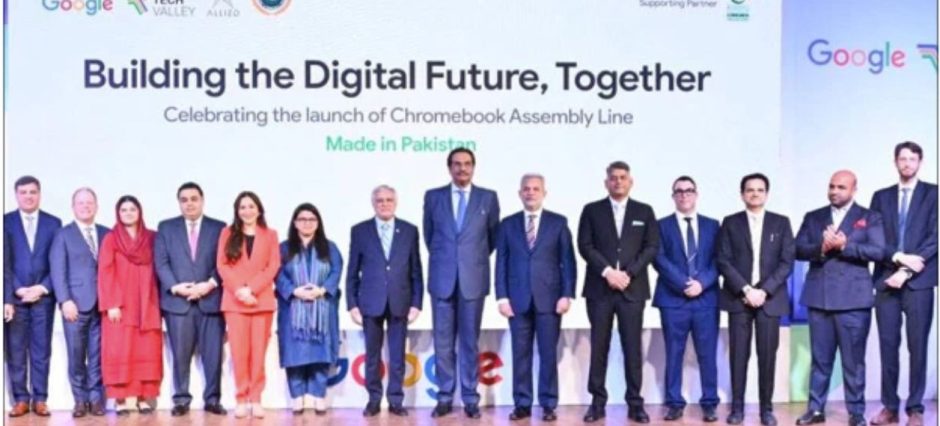Pakistan has inaugurated its first Google Chromebook assembly line in Haripur, marking a significant milestone in the country’s digital development. The launch is being seen as an important step toward supporting Digital Pakistan initiatives, reducing reliance on imported technology, and making digital learning more accessible for students.
The assembly line has been established through cooperation between the Pakistani government and industry partners who are working with Google. Officials stated that locally assembled Chromebooks will help expand access to affordable laptops, especially in the education sector where digital devices are becoming essential for both online and classroom-based learning.
According to government representatives, the initiative is expected to create new jobs, encourage technology skills among youth, and support the growth of the local hardware manufacturing industry. The goal is to shift Pakistan from being primarily a consumer of technology to becoming a contributor to global supply chains.
The introduction of locally produced Chromebooks also aligns with the broader push for digital governance and infrastructure development across the country. For example, the ongoing expansion of smart systems such as the E-Challan system in Gujranwala is another indication that Pakistan is increasing its investment in digital solutions and connected services.
Officials noted that Chromebooks are known for being cost-efficient, secure, and easy to manage, which makes them suitable for students and educators. The devices operate on ChromeOS and are widely used in schools across multiple countries due to their cloud-based learning support and quick startup features.
During the launch ceremony, leaders emphasized that this step is not only about manufacturing devices but also about improving the country’s digital readiness. Training programs are being introduced to help teachers and students effectively integrate digital learning tools into their academic routine.
Industry experts believe the local assembly line will reduce device costs by avoiding import duties and shipping expenses, making technology more affordable to a larger population. The project may also attract more global tech partners to invest in Pakistan’s IT hardware and education technology sectors.
The government has expressed plans to further expand local production capacity and eventually move from assembly to full hardware manufacturing. If this transition is successful, Pakistan could become a regional hub for affordable educational technology.
The opening of the Chromebook assembly line is being regarded as a major milestone for the Digital Pakistan vision and a sign of progress toward a more technologically equipped society.











